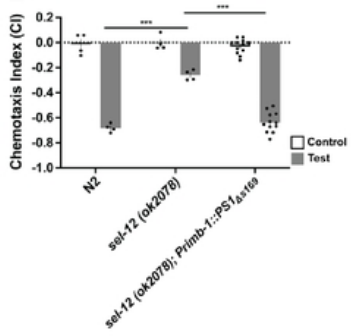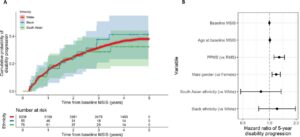
Mahraz Parvand, et al. – University of British Columbia.
This study of C. elegans found that a PSEN1 mutation associated with familial AD leads to neurodegeneration in chemosensory neurons. Since these nematodes lack a homolog of APP that can generate amyloid-beta, this process is independent of PSEN1’s role in forming amyloid-beta, raising questions for the amyloid hypothesis. This phenotype was rescued by a PSEN1 mutant that leaves Notch signaling intact, suggesting that impaired cleavage of Notch may be involved in PSEN1-mediated neurodegeneration.




